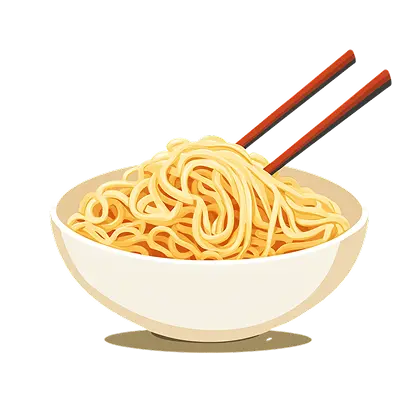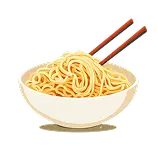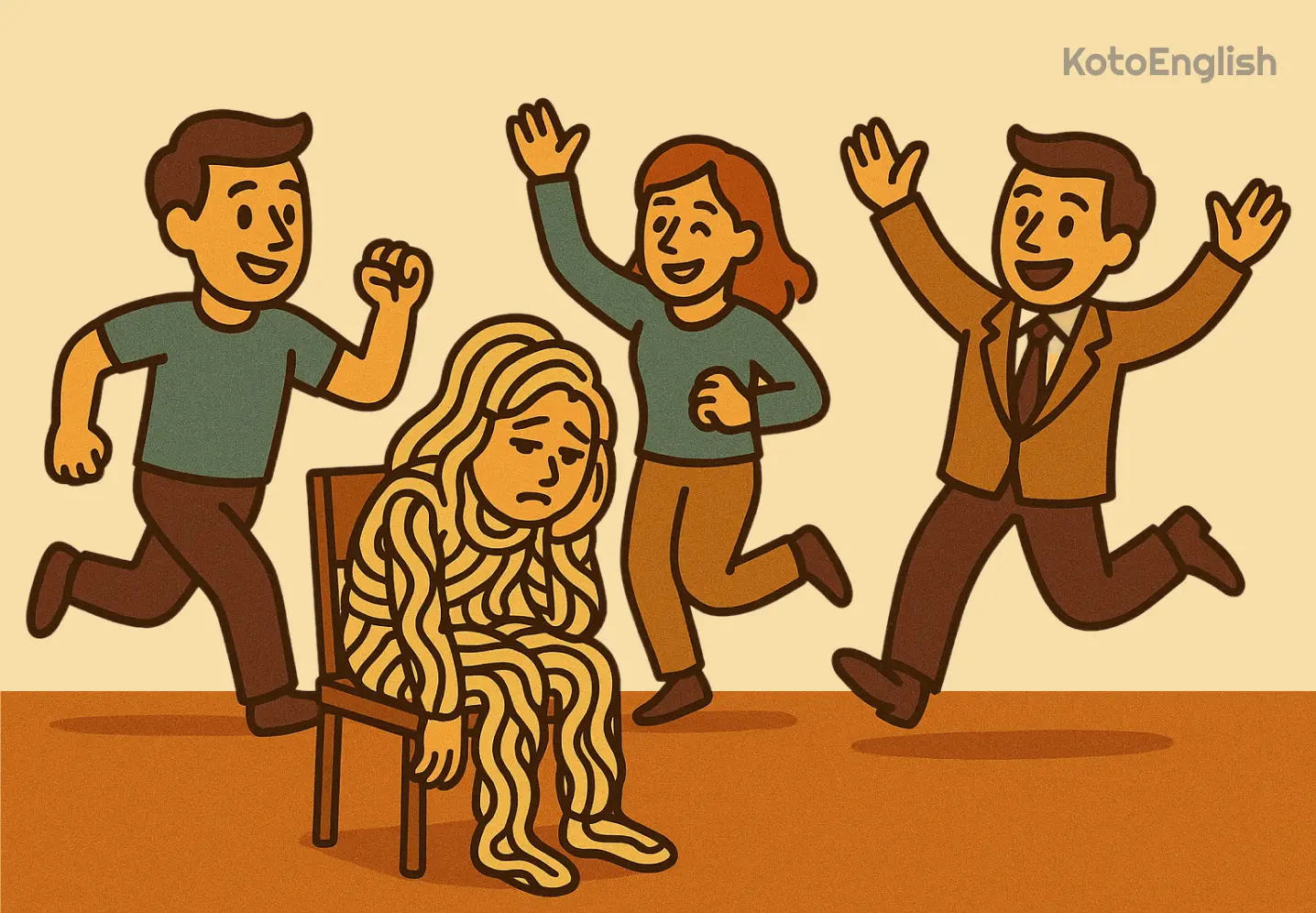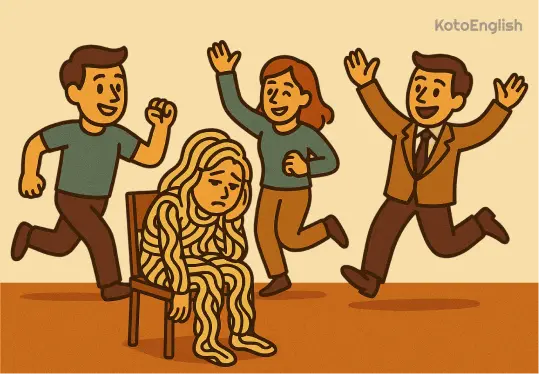

Noodles (noun) are very long and thin strands of dough prepared using water, flour, and in some cases, eggs, normally cooked in boiling water.
Noodles are used as the staple in numerous cuisines, such as Italian pasta, Asian ramen, and stir-fries. They may be served either hot or cold, in soups, salads, or sauces.
How to Pronounce "Noodles"?
say noo as in new, and add the ending dlz to the end. Remember to keep it smooth and light, as though you are slurping real noodles!
Level up your English with Koto!
Examples: How to Use “Noodles” in a Sentence?
Having now a notion of noodles description, we will proceed to find out how this nice-sounding word is used in conversation and writing.
What Are Synonyms for the Word “Noodles”?
Synonyms should make your speech more natural and expressive. As an alternative to repeating noodles, use the following in relation to a specific situation.
Related nouns: pasta spaghetti ramen
Synonyms (contextual): macaroni linguine soba
Common collocations: cook noodles instant noodles bowl of noodles
“Noodles” Word Formation and Description in Context
The first thing to do is to define noodles. Now learn to use them in a natural speech.
With adjectives: spicy noodles hot noodles soft noodles
With verbs: eat noodles boil noodles mix noodles
With nouns (noun + noun): noodle soup noodle dish noodle recipe
Idioms and Phrases with “Noodles”
In English, noodles definition isn’t only about food. It also appears in fun idioms that bring personality and humor to your speech.
-
Use your noodle means to think smartly or use your brain to solve a problem. It is normally employed as a joke in a scenario where an individual is forgetful or lacking a glaring answer.
If you can’t find your keys, use your noodle and think where you last saw them. -
Off one’s noodle refers to a person behaving oddly, stupidly, or a bit crazily. It is a light-hearted manner to say that a person is not thinking in a straight line.
He must be off his noodle to ride a bike in the snow without a jacket. -
Noodle around is to experiment, play or mess about with something with no definite plan in mind. It is usually applied in artistic terms such as music, art or writing.
Ellie likes to noodle around on her guitar until she finds a melody she loves. -
Wet noodle is somebody who is either lifeless, unenthusiastic, or uninspired.
Don’t be such a wet noodle at the party. Come dance with us!


Noodles Meaning Quiz: Test Your Knowledge!
It is time to test whether you can find the answer to the question, “What do noodles mean?” in an easy and enjoyable way.
Enjoy personalized learning!
“Noodles” Word in Other Languages
Check out how to spell “noodles” in different languages to discover how it changes around the world.
| Language | Word for “Noodles” |
|---|---|
 Spanish
Spanish |
Fideos |
 French
French |
Nouilles |
 German
German |
Nudeln |
Did You Know It? Fun Facts About “Noodles”
Noodles are plain, though intriguing and their history is more than most people assume. Here are some interesting things to note about this favorite food.
-
The earliest noodles that were ever discovered were more than 4,000 years old.
The archaeologists discovered a bowl of noodles made of millet 4,000 years ago, which indicates that noodles were a staple food long before the advent of time. -
Momofuku Ando invented instant noodles in 1958.
He came up with a ready-to-eat meal that was affordable to Japanese people. Quickly gaining popularity across the world, instant noodles transformed the food habits of people and gave rise to dozens of flavors and innovations throughout the decades. -
Noodles come in thousands of varieties worldwide.
Since the spaghetti and penne in Italian cuisine are the ramen in Japanese, the pho in Vietnamese and rice noodles in Thai cuisine, all nations have invented types and shapes of noodles, with the various ways of cooking them. This variety renders noodles versatile as they are used as a soup, stir-fry, salad, and cold dish. -
The longest noodle on earth was over 3,000 meters.
In 2017, one of the teams in China made this record-breaking noodle by stretching and cooking it for hours. The Guinness World Records has verified it as the longest noodle to have been prepared, which is not only a culinary art, but also a show of patience, as well as making a food with no extraordinary meaning a marvel of engineering.
Well-Known Quotations with the Word “Noodles”
Food to ponder: noodles have been used in many phrases that denote the feeling of comfort, patience, and happiness.
— Chuck Palahniuk
Explanation: Chuck Palahniuk highlights how noodles and ramen in particular act as a soothing and imaginative release, even to people in challenging circumstances, such as prison.
— Brie Larson
Explanation: This quote demonstrates that instant noodles may make a convenient and efficient food in difficult periods. Brie Larson recalls her childhood life, and she underlines that noodles were an easy source of food in times of shortage.
— Rich Brian
Explanation: Rich Brian tells a story of how noodles were used as a representation of devotion and how food can be used to bond people.





